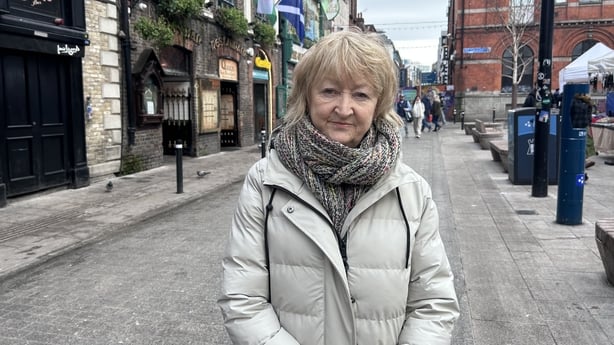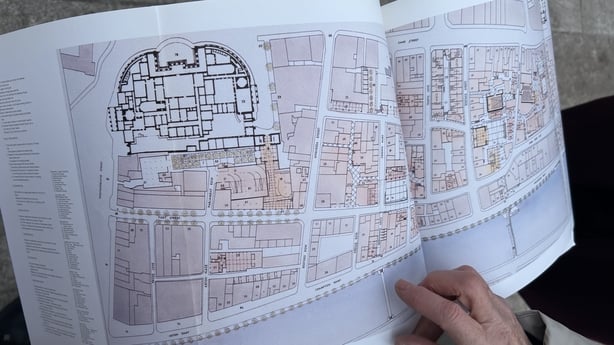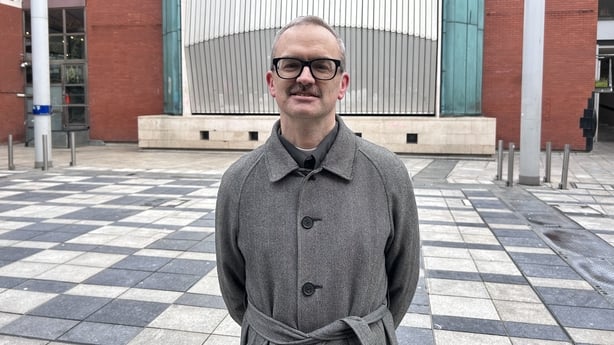The architects behind the construction of Dublin's Temple Bar say there is plenty of potential for regeneration in the capital but that new projects need to encourage more people to live in the city's core.
An international architectural summit being hosted in Dublin will also hear a call for inner city residents to have a voice in future development.
It is almost 35 years since the regeneration of Dublin's Temple Bar as a cultural quarter got under way after plans to build a bus depot in the area were scrapped.
Group 91 were the architects behind what is now the capital's best known district and their work is one of the focuses of the Open House Europe Summit, an international architectural conference that is being hosted in the Irish capital this week.
One of the architects behind the Temple Bar regeneration was Yvonne Farrell, now of Grafton Architects.
She says she believes that Dublin city has plenty of potential for regeneration similar to that which happened in Temple Bar.


While she acknowledges the area is more commercial than originally envisaged, she says it is also an example of why any new development in Dublin needs to ensure that they encourage more people to live in the city centre.
"It has lived up to the fact that it's alive and vibrant and not destroyed. It has lived up to the fact that are people living here but not as many as we hoped," Ms Farrell said.
"I think the lessons learned is finding a balance between commerce, the pub and culture and music which is fantastic, but also a balance between how you have nightlife and how you have people living.
"I think that's something that needs to be controlled. Cities are about people. Buildings hold the lives of people. They're the outer skin of how people live. But in the end cities are for people."
The theme of the conference is accessibility and inclusion and it will also hear calls for inner city residents to have a say on the city's future development.
Emmett Scanlon, Director of the Irish Architecture Foundation, praised the recent Dublin Taskforce report on the future of the capital, but he says the people who live in Dublin's inner city and Irish people as a whole need to take ownership of any plans for the development of the city.

"If you're talking about access and inclusion you have to find ways of including everyone. And not everyone wants to be included," he said.
"For us we would like to hear from people who are already in the city and learn more about how they're living, how the city supports their daily lives and maybe doesn't support their daily lives.
"And also include people who are generally excluded from the conversations around the city, people with physical or intellectual disabilities or people who think the city is not longer for them.
"They're living outside the city, why don't they come in any more.
"So I think its almost like a national conversation, particularly when it comes to areas like O'Connell Street. Its our national street and it belong to all of our identities.
"It belongs to all of the nation and I think it would be great to start a large conversation about what that street means to all of us."
The Open House Europe conference, which has delegates from 25 countries across the world taking, is hosting a number of talks in the capital and runs until Saturday.







